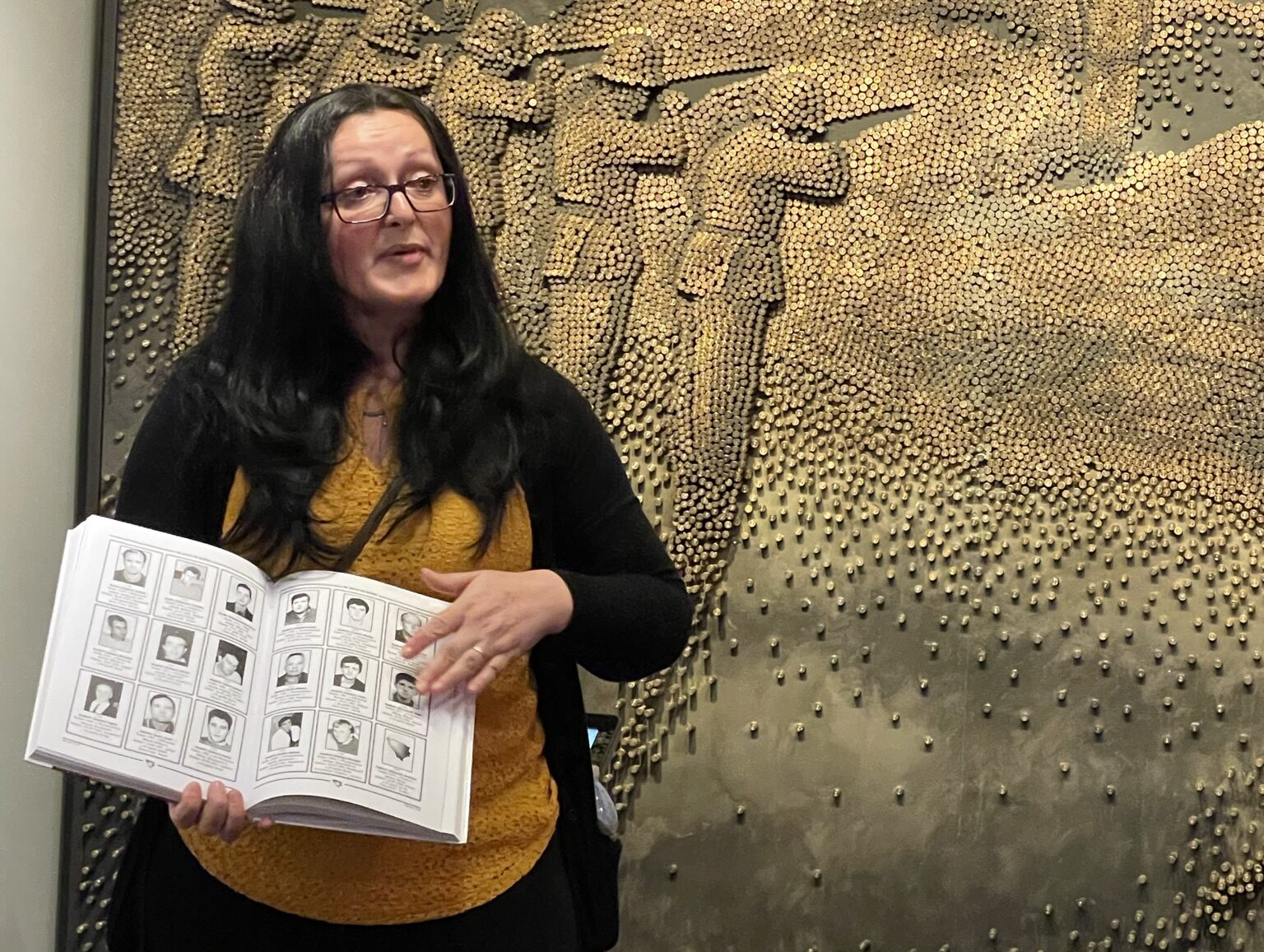Written by Brianna Connock, Marketing & Outreach Associate
Mirsada Kadiric, Bosnian genocide survivor and refugee activist, hosted an engaging discussion, Q&A session, and museum tour at the Nancy & David Wolf Holocaust & Humanity Center, where she shared her experiences as a refugee and now as a refugee mentor.
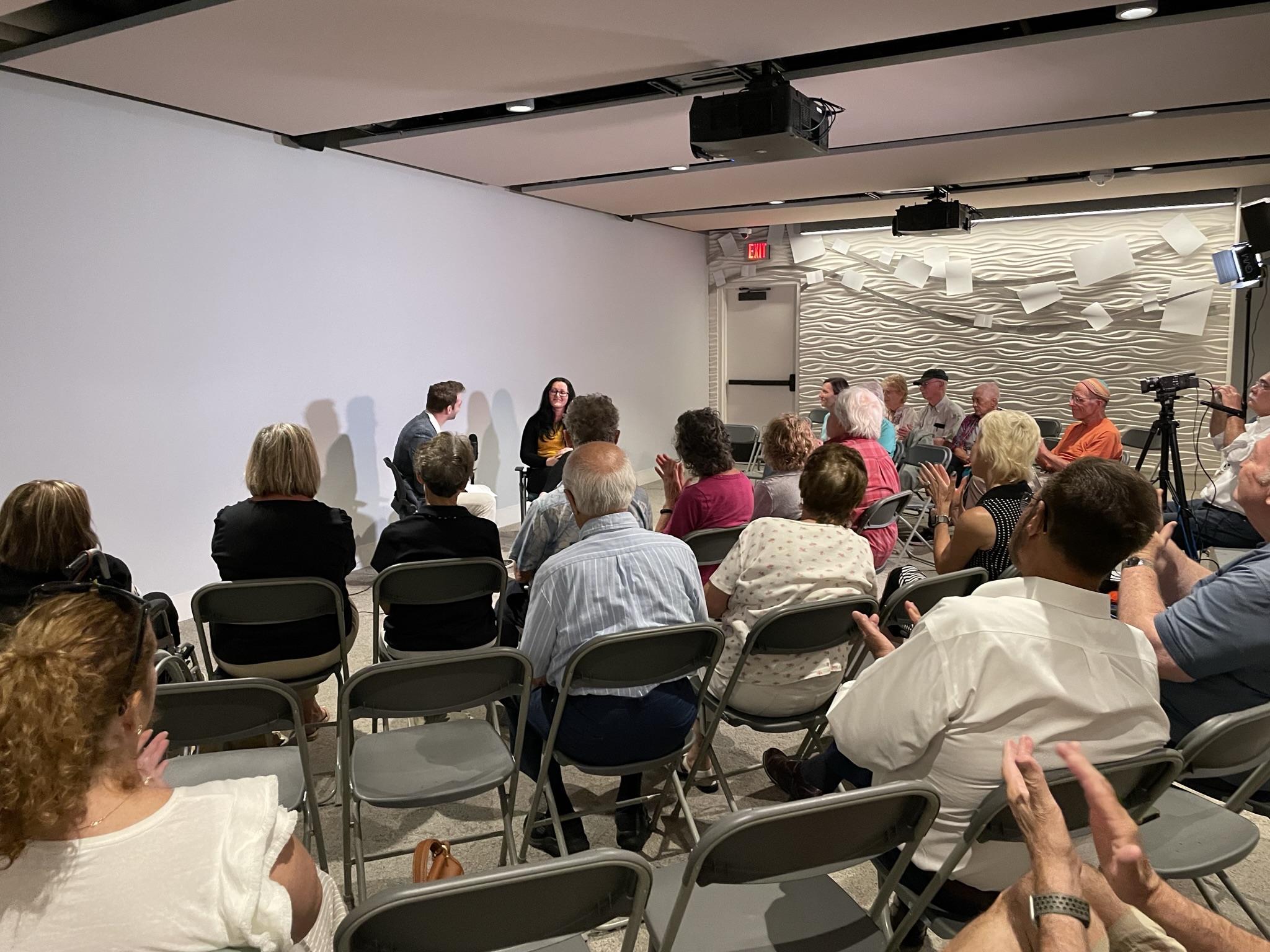
Kadiric was just 16 years old when she fled her home country and came to the United States. She shared how she finds peace in writing, and that she wrote her 2018 book I am a Refugee: Finding Home Again in America little by little.
Kadiric also read some of her poetry to the audience and shared that she is coming out with a second book, featuring her poetry, in the future.
Kadiric searched for nonprofits to be involved with back in 2017 and found Refugee Connect. After starting out by visiting her two mentees weekly at their high school, she was asked to be the organization’s first board president as they were transitioning to become an independent nonprofit.
Refugee Connect partnered with the Nancy & David Wolf Holocaust & Humanity Center shortly after her book was published to put on an event to share her story, which lead to her story being featured in the Humanity Gallery of the museum. Since then, Kadiric has made it her mission to share her story with thousands in the region and beyond, through small, intimate conversations and large public events.
While she said it can be overwhelming, she has never hesitated to say yes to sharing her story and having her voice be heard in the hopes of opening constructive dialogue about refugees.
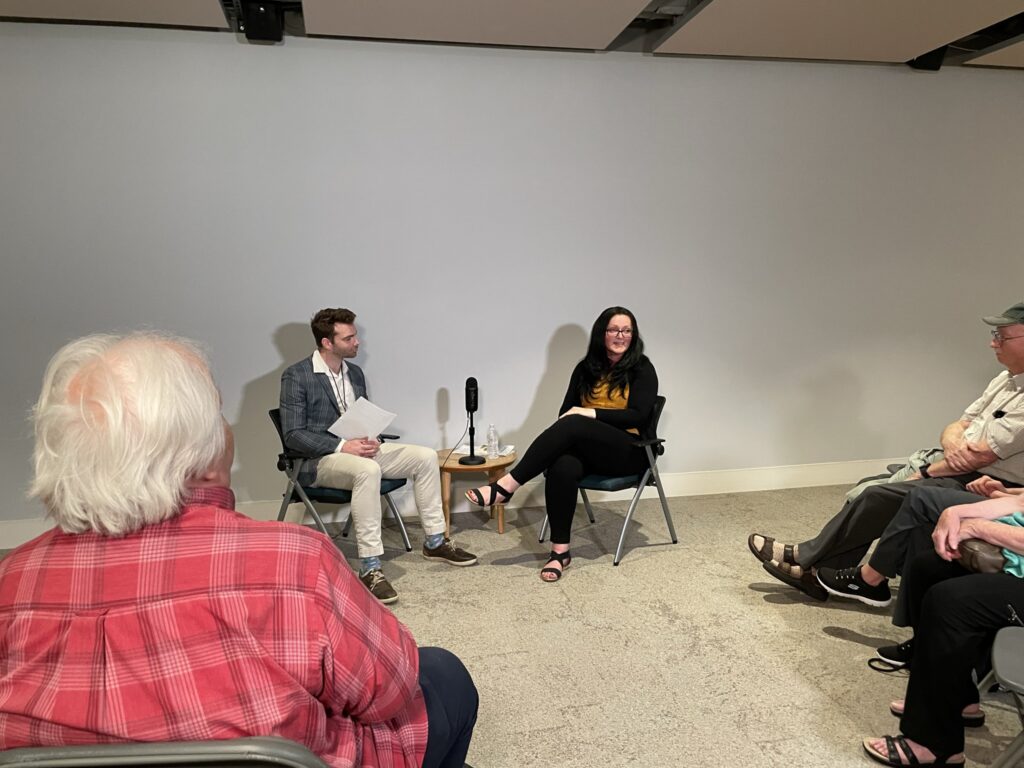
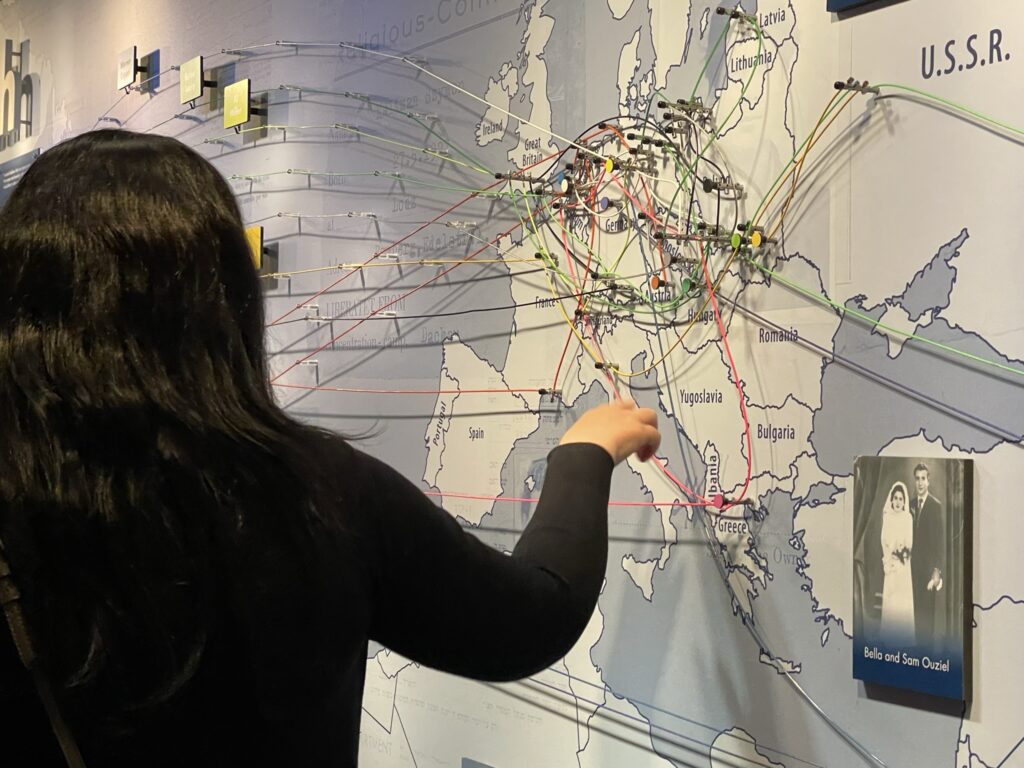
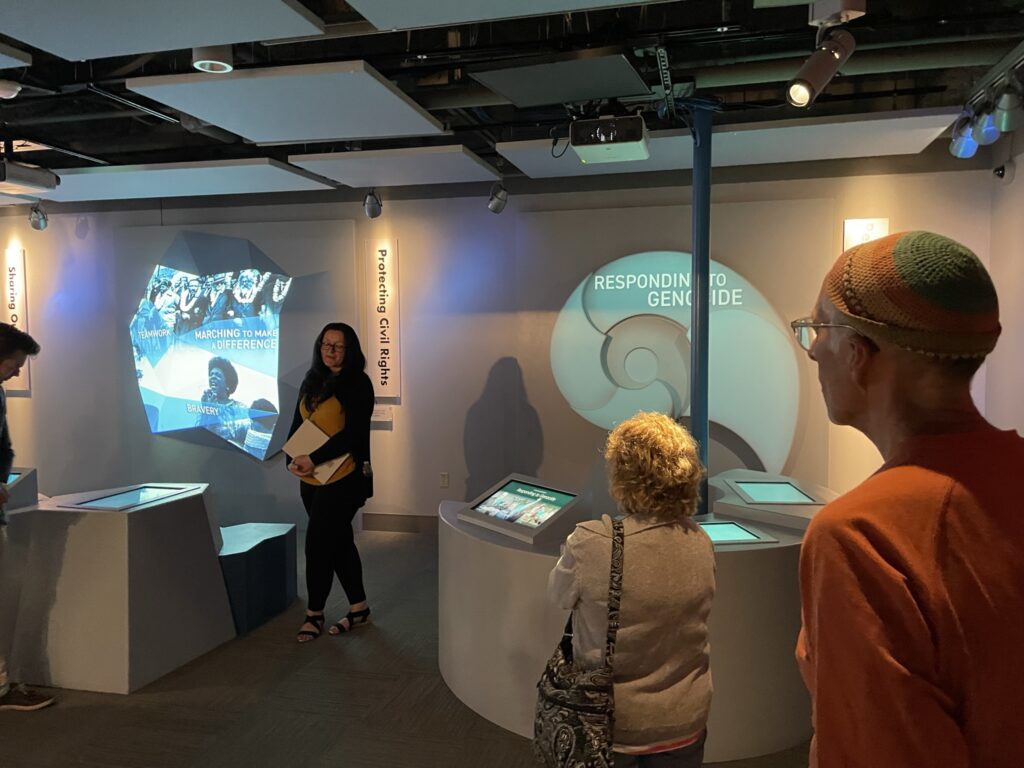
The event was then opened up to a Q&A with Kadiric. Click here to watch the full Q&A.
Q: How do we get started being an Upstander?
A: I think it starts with reflection. Within your own life, and the things that you care about. Whatever it is that makes you tick, something that is very relatable to you and that you can identify with, and start asking yourself if there is something that bothers you about it. It can start very small, as simple as having a conversation with someone.
Q: How has your perspective changed since you had children, given that as a child yourself you were a refugee?
A: I was emotional about this before, but really through the lens of me and what happened to me. Now my shift in focus goes to [my children]. I want them to grow up in a future where they don’t have to go through what I went through. They won’t be judged or persecuted based on their skin color, religious preference, or whatever beliefs they may have.
Q: How is corporate America addressing these issues?
A: The way we’ve been addressing it [at my workplace] is by holding discussion forums for the employees on a variety of topics. I think the role of corporate America at the very least is to at least host constructive dialogue sessions within a safe space so that we can start to talk about it with one another. I think it’s the lack of dialogue that has caused some of these camps.
Q: What does your work look like when you’re working with refugee youth, and are they able to open up to you about their own trauma? How does that effect you as you work with them?
A: It’s easier for them to open up to somebody like me who has been in their shoes. I know all of the challenges that they’ve gone through and would potentially face here. It’s certainly rewarding for me, but also I hope they don’t have to have as much trouble as I did. It’s all about that progress.
# # #
ABOUT THE NANCY & DAVID WOLF HOLOCAUST & HUMANITY CENTER
The Nancy & David Wolf Holocaust & Humanity Center exists to ensure the lessons of the Holocaust inspire action today. Located at Cincinnati’s historic Union Terminal, HHC impacts more than 2.5 million people every year through digital and in-person events, museum tours, educational experiences, social media, and virtual content. From Australia to India, individuals from more than 25 countries and 30 states engage with our mission. For more information, visit www.holocaustandhumanity.org.
